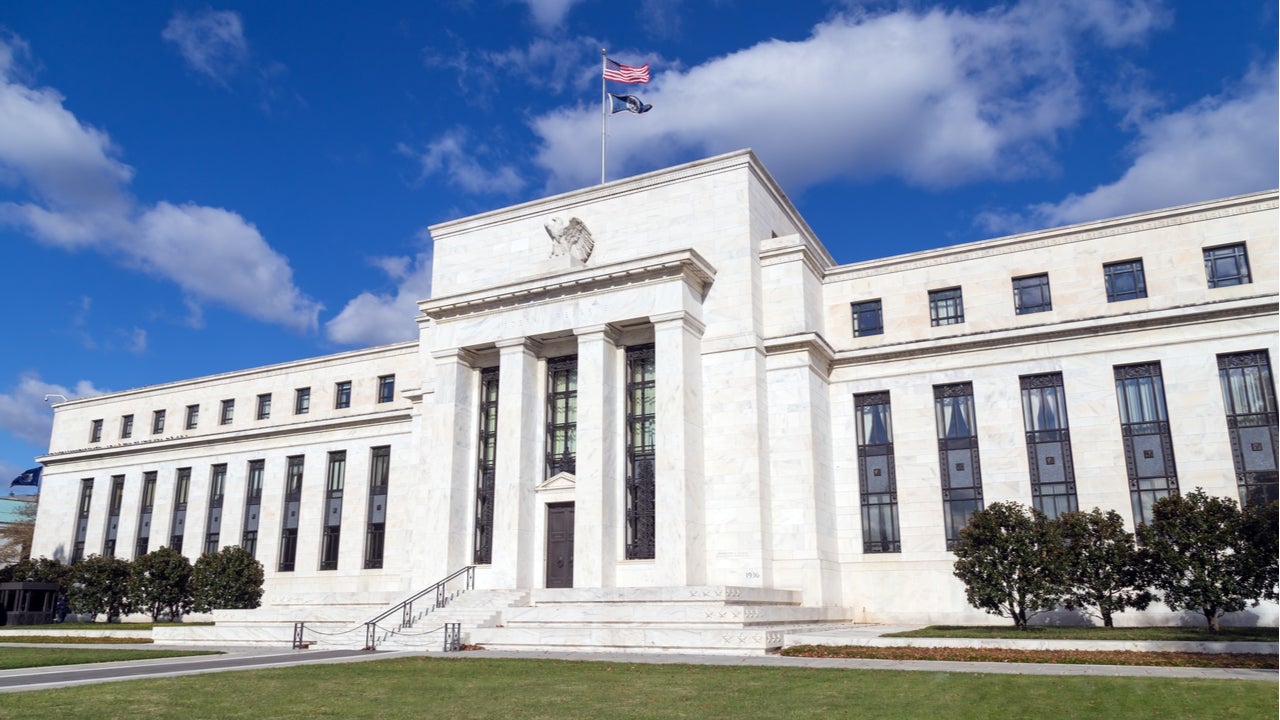What is the highest interest rate on a car loan?

Key takeaways
- There is no federal maximum interest rate for auto loans. Whether you receive a high interest rate is based on factors such as your credit score, the vehicle you purchase, the terms of your loan and the state where you are financing the vehicle.
- Some states such as Arizona, set interest rate caps on loans for personal purchases, like cars, but others do not.
- There is no federal cap on interest rates, but military service members fall under special regulations through the Military Lending Act and the Servicemembers Civil Relief Act.
Since auto loan rates are usually advertised with their starting rate, you might wonder what the highest interest rate on a car loan is. The answer isn’t straightforward because rates depend on a number of factors, some specific to the consumer and some tied to the economy at large.

Auto loan calculator
Want to get started on those calculations? Bankrate's auto loan calculator is here to help you crunch those numbers.
Calculate nowHighest auto loan interest rates by credit score and vehicle type
Two factors that greatly impact your interest rate on an auto loan are your credit score and the type of vehicle you are buying. Generally speaking, higher credit scores receive lower rates, as well as newer and lower-mileage vehicles.
Credit score
Your credit score plays a significant role in the average interest rate lenders will offer you. Lenders generally rely on your FICO score or VantageScore to get a snapshot of your financial track record when underwriting your loan, including your payment history, credit utilization and credit mix. The best interest rates on auto loans are offered to applicants whose scores are in the mid-600s or above.
| Personal FICO score | Average interest rate for new car loans | Average interest rate for used car loans |
|---|---|---|
| 781 to 850 (super prime) | 4.88% | 7.43% |
| 661 to 780 (prime) | 6.51% | 9.65% |
| 601 to 660 (near prime) | 9.77% | 14.11% |
| 501 to 600 (subprime) | 13.34% | 19.00% |
| 300 to 500 (deep subprime) | 15.85% | 21.60% |
Asking the experts: What can consumers do to help themselves when faced with a high interest rate environment?
I really, really want consumers to know what their current cars are worth before starting their shopping journey. It doesn’t matter if your credit score is 800 – you’re still going to be offered 7%, maybe 6%, if you have a great lender in your pocket. When you have that number looming over your deal, the only leverage you have is the value of your current car.— Joseph Yoon, Consumer Analyst for Edmunds
Be educated on what those current price points are and hit some of those monthly payment calculators so that you’re not surprised when you see what happens with a $40,000 or $45,000 vehicle price point and what that monthly payment will be. Historically, consumers have always tended to shop by monthly payment. You know, going in and saying, ‘I don’t want anything higher than $750 a month.’ But I recommend you negotiate the cost of the vehicle and then work out what your terms will be.— Melinda Zabritski, Head of Automotive Financial Insights for Experian
Vehicle type
According to Experian, in the third quarter of 2025, the average rate for a new car for excellent credit borrowers was 4.88%, while the average rate for a used car for excellent credit borrowers was 7.43%.
Lenders will typically price new vehicles at a little bit lower rate than used, and it's really all about things that can impact the risk of the loan.— Melinda Zabritski, Head of Automotive Financial Insights for Experian
Auto loans are secured by the vehicle that is being financed. If the borrower can’t pay, the vehicle could be repossessed by the lender to recover its money.
“Older vehicles that might not be on the road in a few years, or will break down, pose a little bit higher risk,” Zabritski says. This is also true of cars with higher mileage.
Asking the experts: What advice do you have for consumers who need a car now, but only qualify for high rates?
Lender mix will affect your rate. Credit unions typically are going to have lower rates than banks…but right now, banks are getting more aggressive and are looking to grow auto loans again, so consider multiple lenders. I always recommend you get preapproved so you know the rates and you’ve got something to negotiate with.— Melinda Zabritski, Head of Automotive Financial Insights for Experian
When the environment is so consumer hostile, I think it’s best to have as many tools in your pocket as possible. For many, the only leverage that you have is the value of your current car, so get it appraised. When you know that number intimately and you go to the dealer and try to negotiate, you’ll know a good deal or whether you need to try trading in elsewhere.— Joseph Yoon, Consumer Analyst for Edmunds

Best bad credit auto loan rates
Need to buy a car but credit score not ideal? Check out Bankrate's list of auto loan lenders.
Check lenders nowHighest auto loan interest rates by state
States set their own maximum interest rates that lenders can charge consumers, and they enforce those rates with usury laws. Usury laws influence the maximum rate you can be charged when you buy a vehicle, and that limit can vary widely from state to state. For example, California sets a maximum of 10% per year for loans for personal goods, while Nevada has no maximum rate and no usury laws.
Importantly, you are subject to the usury laws of a state where you borrow money, not necessarily the state where you live. For example, if you live in California but use an auto lender in Nevada, you will not be protected by California’s usury laws.
The amount and term length of your loan influence the maximum interest rate you can receive as well. Most states set higher interest rate caps for smaller, short-term loans than for larger, long-term loans.
| State | Average used car APR | Average new car APR |
|---|---|---|
| New York | 9.93% | 6.75% |
| New Hampshire | 9.07% | 6.30% |
| Massachussetts | 9.37% | 6.58% |
| Ohio | 11.6% | 7.56% |
| Tennessee | 10.93% | 7.21% |
| Georgia | 12.56% | 8.36% |
| Arkansas | 11.6% | 7.73% |
| Kansas | 10.46% | 6.74% |
| Nebraska | 9.31% | 6.20% |
| Colorado | 10.01% | 6.76% |
| Washington | 8.84% | 6.29% |
| Oregon | 9.37% | 6.48% |
| Idaho | 9.01% | 6.55% |
| Utah | 8.50% | 6.58% |
| New Mexico | 12.23% | 8.73% |
Use the Conference of Bank State Supervisors‘s interactive map of usury laws across the country. If you believe a lender is offering you a rate that breaks the law, consult a lawyer or your state’s attorney general. You may be able to recover interest you have paid on your loan if you have been charged more than the legal limit.
5 factors that influence your interest rate
Beyond credit and usury laws, it’s crucial to note that other factors can impact the interest rate a lender might offer you.
Loan amount
Large loan amounts come with higher rates, while lower loan amounts have lower rates. You can control your loan amount by making a larger down payment and financing less. You can also purchase a less expensive vehicle. Yoon suggests being “really familiar with your budget” and taking a “hard look at the cars you’re shopping” to assess what kind of car would help assist you with your everyday needs.
Do you really need that car, or could you get by with a car that's a little bit smaller and cheaper? Don't buy the car you'll use three days out of the year. Buy the car that you're going to need 365 days out of the year.— Joseph Yoon, Consumer Analyst for Edmunds
Loan term
While longer-term auto loans can help lower your monthly payment, they often have higher rates than shorter-term auto loans. Beyond that, a long loan term will mean paying more in interest overall, even if you are able to score a competitive rate.
Down payment
Making a larger down payment on your auto loan could lower your interest rate. This is because you will need to finance less, and lower loan amounts — similar to shorter loan terms — often come with lower interest rates.
Loan-to-value (LTV) ratio
The LTV of your auto loan compares the amount you are borrowing to the cost of the car you are buying. If you make a down payment, you will borrow less than the car costs and your LTV will be lower. If you borrow more than the car is worth – maybe to consolidate debt or pay off your old car loan – then you will have a high LTV.
LTV will certainly impact rates, so having a little bit more down payment, that'll certainly help your rate.— Melinda Zabritski, Head of Automotive Financial Insights for Experian
Benchmark rate
The Federal Reserve sets the benchmark rate, which is the cost for banks to loan money to each other. Indirectly, that affects the cost for lenders to make auto loans to consumers. When the benchmark rate is lowered, auto loan rates also drop.
Yoon says he does not expect the Fed to lower the benchmark rate any time soon. “[Jerome Powell] has been very specific about keeping rates where they are to really mitigate inflation. And it’s tough to see on the consumer end how that’s working, but at the economic level, it has been effective.
Special protections for military service members
The Military Lending Act and Servicemembers Civil Relief Act limit the interest rates lenders can charge active duty service members and their families.
- Military Lending Act: This act applies to active duty service members, their spouses and certain dependents. It places an interest rate cap of 36% on unsecured auto loans. Most auto loans are secured by the car being purchased, however.
- Servicemembers Civil Relief Act: Originally passed in 1940, this allows interest rates on loans taken out prior to becoming a service member to be cut down to 6% for the duration of active duty.
Frequently asked questions
Why we ask for feedback Your feedback helps us improve our content and services. It takes less than a minute to complete.
Your responses are anonymous and will only be used for improving our website.
You may also like

How to remove a cosigner from a car loan

How much does it cost to refinance a car?





